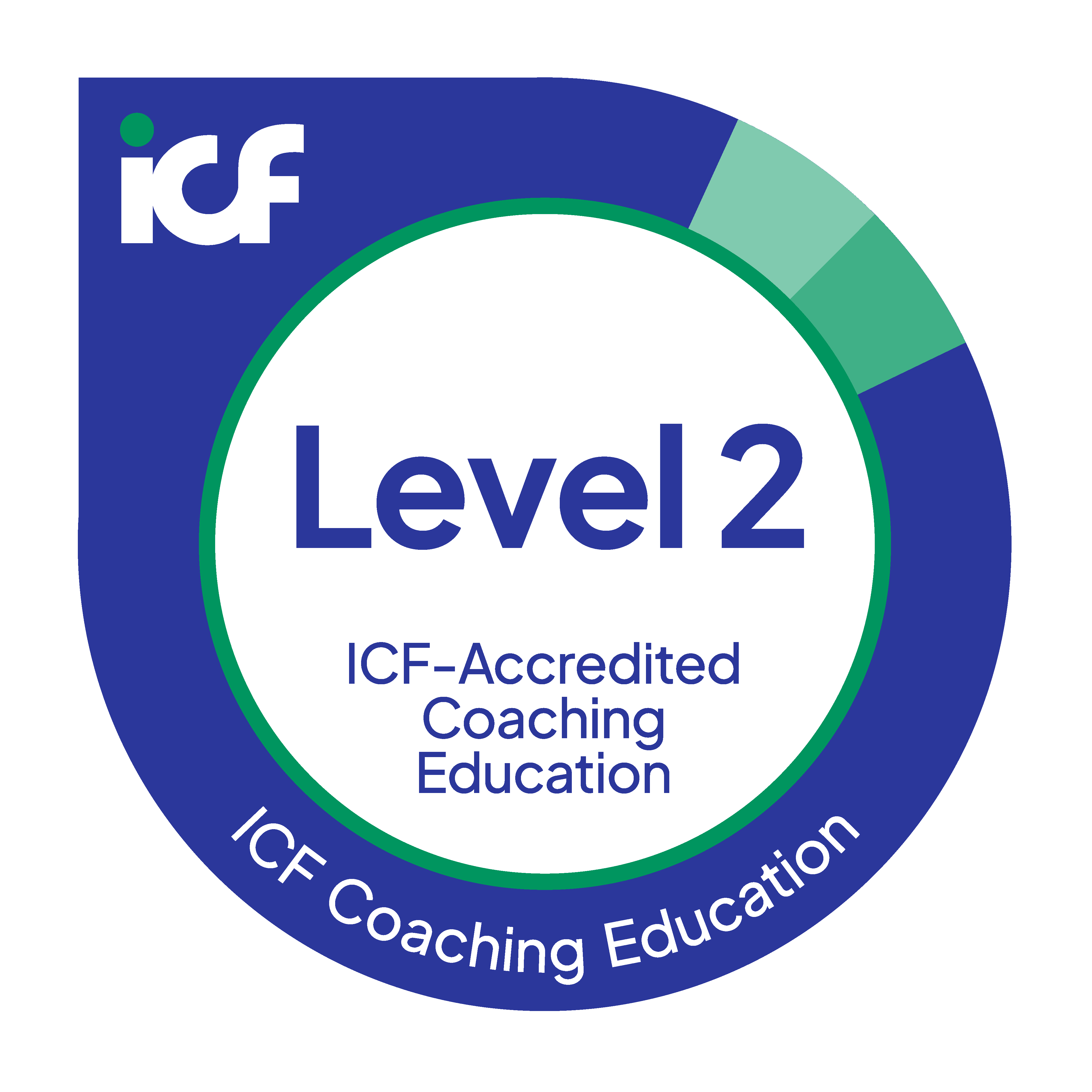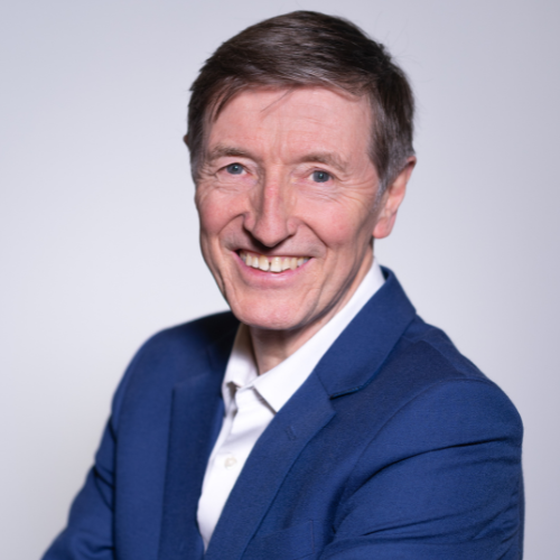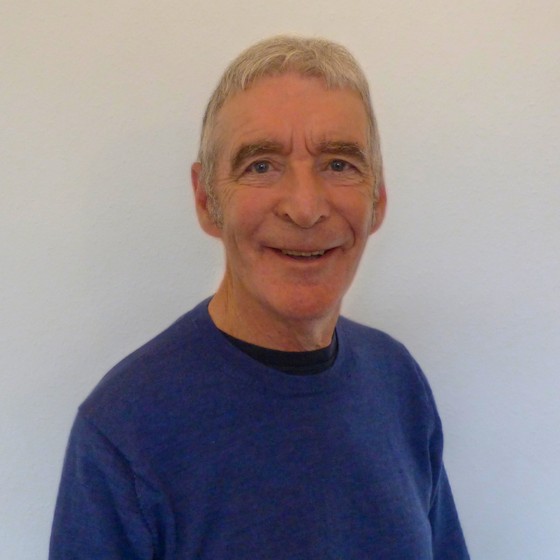Professional Practitioner Diploma vs Master Practitioner Diploma in Embodied Dialogue Coaching
Master Practitioner Diploma in Embodied Dialogue Coaching
Gestalt-informed pathways to ICF PCC or MCC
Master Practitioner Diploma in Embodied Dialogue Coaching
- Are you seeking deeper, more profound results from your coaching?
- Do you have intuitive, gut reactions you’re not using as interventions?
- Are you holding back, concerned about working too close to the therapy/coaching boundary?
This programme is about using your signature presence to create profound change in your clients and developing your skills to address the questions above.
It requires a high level of emotional intelligence, willingness, and courage to engage at depth, so it is appropriate if you want to move beyond performance coaching to a transformational and existential level.
This is an annual programme, and spaces are limited to 16 participants in order to ensure we deliver the highest quality learning experience.
Who is the Master Practitioner in Embodied Dialogue Coaching for?
The Master Practitioner Diploma is designed for experienced coaches (500+ hours) seeking a dynamic and intensive programme which will deepen their practice through the Embodied Dialogue approach.
This is an ICF Level 2 accredited programme which provides a Level 2 Pathway to PCC.
This programme is accredited by:

For coaches with 1000+ hours, we are pleased to offer the MCC Mentor Coaching Pathway which has been designed to meet ICF Level 3 standards (ICF accreditation pending).
Upcoming dates:
16 April 2026 - 10 December 2026
UK/Live Virtual Sessions
Masterclasses led by John Leary-Joyce
Curious but not quite ready to commit to the full programme?
Join our series of five engaging virtual masterclasses, each 1.5 hours long, designed as a powerful introduction to the full module workshops.
- Masterclass 1 - Embodied Dialogue & Use of Self: 16 April 2026: 10.30 - 12.00 UK time
Masterclass 2 - Creative Experimenting: 11 June 2026: 10.30 - 12.00 UK time
Masterclass 3 - Polarities & Projections: 10 September 2026: 10.30 – 12.00 UK time
Masterclass 4 - Gestalt Cycle of Experience and Interruptions: 17 September 2026: 10.30 – 12.00 UK time
Masterclass 5 - Signature Presence: 23 October 2026: 10.30 – 12.00 UK time
You can attend all five masterclasses for just £150 + VAT.
If you decide to enrol in the full programme afterwards, this fee will be deducted from your total programme cost.
Before each workshop module the Masterclass will be repeated so you will have a second opportunity to absorb the theory.

Master Practitioner Diploma Open Event
Register your place on a free, one-hour virtual session exploring the Master Practitioner Diploma in Embodied Dialogue Coaching led by programme faculty John Leary-Joyce. You will find out more about this advanced programme and the pathways to ICF PCC and MCC credentials.

Professional Practitioner Diploma in Executive Coaching vs Master Practitioner Diploma in Embodied Dialogue Coaching
Which course is right for you?
Benefits of the programme
- Deeper more satisfying coaching practice
- Transformational change in your clients
- Profound self-awareness and personal well being
- Develop your own theoretical model based on the Embodied Dialogue approach
- Complete ICF Level 2 to prepare for your PCC credential, OR
- Complete the MCC Mentor Coaching Pathway to prepare for your MCC credential
What you will learn
- How to use your somatic reaction as a powerful intervention
- Theoretical frameworks to understand the rational for this approach
- The ways to overcome ‘blocks’ and ‘resistances’ with certain coachees
- Coaching senior leaders who are in complex situations beyond solution focused or performance coaching
- Discover more about yourself and how to use that to great effect in your coaching practice
- How to maximise your signature presence for greatest impact
How you will learn
With the hybrid format of three virtual modules, two in-person modules, and virtual group and 1-1 mentor coaching you will learn through:
- Clear theoretical explanation during Masterclasses before each module that build understanding of this intervention style
- Personal disclosure and taking risks to be vulnerable especially during the in-person residential
- Skills practice every day experimenting with new ways of intervening during the workshop modules
- Feedback from colleagues and faculty in Mentor Coaching Groups to hone your skills against ICF competencies
- Multiple faculty demonstrations which give you a chance to observe and question master coaches
- Being the client so you experience what it is like to have these techniques applied to you
- Reflection on theoretical, experiential and practical learning to embed new skills into your style of coaching
- Through the final assessment process where you present your model of practice and demonstrate your skills against ICF competencies
Your learning experience
You will join the programme with a healthy balance of anticipation, excitement and anxiety, ready for an adventure that fits with your stage in life.
Getting to know your colleagues on the programme and finding a deep connection over time as you take risks and explore challenges to build deep bonds that will last far beyond the programme.
Developing new skills you hadn’t imagined would work as you learn to trust your intuition and ‘gut reaction’ and understand how to turn these into powerful interventions is an exciting journey.
Combining all that into a coherent personal coaching model and practitioner style that fits your personality, life stage and work experience creates confidence and presence.
All participants will complete an assessment process, including a performance evaluation, to complete the programme. You may have to repeat the process more than once – the AoEC does not guarantee passing.
Accreditation and Pathways
There are two pathways through the Master Practitioner Diploma in Embodied Dialogue Coaching [previously Diploma in Advanced Gestalt Coaching] depending on your level of experience:
ICF Level 2 Pathway to PCC (500 hours of practice)
This is an ICF Level 2 programme and accredited for 139 total hours of coach-specific education.
Graduates following the Level 2 Pathway will have completed the education hours, mentor coaching, and performance evaluation requirements for ICF Professional Certified Coach (PCC).
This programme is accredited by:

MCC Mentor Coaching Pathway (1000 hours of practice, PCC required)
This provides 143 hours of coach-specific education with 77 hours designed to meet ICF Level 3 requirements.
Graduates following the MCC Mentor Coaching Pathway will have completed the education hours and mentor coaching requirements for ICF Master Certified Coach (MCC) via the Portfolio route.
ICF Level 3 accreditation is pending and cannot be finalised until after the first cohort has graduated. If ICF Level 3 is awarded, graduates will be eligible to apply for ICF MCC via the Level 3 route.
It must be noted that eligibility for the ICF MCC credential requires 2,500 hours of practice, and it is likely that further mentor coaching will be required before taking the ICF MCC performance evaluation. The AoEC will provide guidance on the MCC standard but cannot give assurances of gaining the MCC credential.
Entry Requirements
To ensure a high level of coaching expertise and basic knowledge of the Gestalt approach, you will need to:
1. Have completed the Advanced Coaching Skills Gestalt Embodiment - Foundation Programme – or equivalent
2. Be an experienced coach with practice hours of 500+ for Level 2 Pathway and 1000+ for MCC Mentor Coaching Pathway
3. Level 2 Pathway requires ACC/Practitioner level training or equivalent
4. MCC Mentor Coaching Pathway requires PCC status
FAQs
How many people will be on the Master Practitioner Diploma Programme?
The maximum number of people attending this coach training programme is 16.
The masterclasses may also be joined by participants from the MPD Masterclass Series.
This programme will accommodate a maximum of 8 participants on the MCC Mentor Coaching pathway.
Is the Master Practitioner Diploma in Embodied Dialogue Coaching accredited?
This is an International Coaching Federation (ICF) Level 2 programme and accredited by the ICF for 139 total hours of coach-specific education.
We are seeking Level 3 accreditation for the MCC Mentor Coaching Pathway, but we cannot complete this process until the graduation of the first cohort.
All graduates will receive the Master Practitioner Diploma in Embodied Dialogue Coaching from the AoEC.
I have already taken a Level 2 programme. Can I still take the Master Practitioner Diploma?
Yes, you are welcome to take the Master Practitioner Diploma, and if you have enough experience you might select the MCC Mentor Coaching Pathway. The accreditation level is an indicator of experience, and all participants are required to have at least 500 coaching hours.
I have not completed the Advanced Coaching Skills Gestalt Embodiment - Foundation Programme – can I still do this programme?
The Foundation Programme gives you a good basis for understanding the theoretical principles and practical experience of Embodied Dialogue. It is therefore essential that you take this programme before starting the Master Practitioner Diploma unless you have experience of Gestalt coaching or therapy, in which case your application will be considered on a case-by-case basis.
It is called a Master programme, is this a Masters level qualification?
This is not an academic qualification. In completing the Master Practitioner Diploma the objective is that you will have developed masterful skills in Embodied Dialogue Coaching.
Those taking the MCC Mentor Coaching Pathway will be expected to complete a performance evaluation against the ICF standards of Master Certified Coach.
Is this a virtual programme or in-person training?
This is a hybrid programme built around virtual masterclasses and workshops plus a four-day in-person residential.
How long does the programme take to complete?
Including the assessment this programme should take no longer than one year to complete.
Is there any pre-course work?
The Foundation Programme is part of the basic pre-course work and there will be a virtual masterclass and specific study before each workshop.
How much work is there to do between modules?
During the programme the academic study is in the region of 2hrs per week. However, you will be expected to be coaching clients with a minimum of 2 per week plus a peer coaching practice exchange where you are applying principles and skills from the programme. You will also be required to have supervision on your practice.
Who are the faculty for the Master Practitioner Diploma?
John Leary-Joyce (PCC) is the core faculty lead and Mentor Coach for the Level 2 programme with Duncan Coppock (MCC) as Mentor Coach for the MCC Mentor Coaching Pathway.
What support is available to me throughout the programme?
It will be a very supportive group of colleagues so you will have that backup on general learning matters plus peer coaching to address personal challenges. The Mentor Coaching groups are a place to take practice difficulties. You will have at least one tutorial with faculty to discuss course progression and the AoEC Programme Manager provides operational support.
How much does it cost to do the Master Practitioner Diploma?
This PCC pathway for this programme is offered at the special price of £7,995.00 +VAT (if applicable) for alumni of AoEC GB Practitioner Diploma programmes and £8,495 +VAT (if applicable) to non-alumni.
The MCC pathway for the programme is offered at the special price of £8,495.00 +VAT (if applicable) for alumni of AoEC GB Practitioner Diploma programmes and £8,995 +VAT (if applicable) to non-alumni.
The programme is also subject to residential costs for the accommodation at Bore Place. Details of this pricing at contained within the application form.
Is there any financial support available?
We understand that investing in your professional development can be a significant commitment. That is why we are pleased to offer interest-free payment plans for self-funders interested in our programmes and payment plans are available on all Diploma courses: Practitioner Diploma in Executive Coaching, Professional Practitioner Diploma in Executive Coaching and the Master Practitioner in Embodied Dialogue Coaching.
As our courses typically span a number of months, we can discuss spreading your payments over an agreed-upon period, depending on timescales and circumstances.
Upon submitting your application, simply select the interest-free payment option. Once processed, our accounts team will be in touch to agree a payment plan to suit you. At this time, you will receive your first invoice detailing when payments are due.
Whilst our payment plan offers flexibility, it's important to note that it forms an agreement between yourself and the AoEC.
Should you have any questions or require further information, please don't hesitate to contact us. We're here to support you on your journey.
Please contact us for further information.
Do I have to attend all of the sessions?
Yes, you are required to attend and complete all aspects of the programme as well as logging your 35 independent study hours.
If, in exceptional circumstances, you miss a workshop you will need to:
- Speak with one of the other participants to understand what was covered.
- Write a summary of the content discussed to show your understanding.
- Arrange two recorded sessions with a colleague that demonstrate your understanding of the material and how you have integrated it into your practice. These recordings will be reviewed by faculty, and a review fee of £200 + vat applies.
What does the assessment look like?
Assessment for the Master Practitioner Diploma comprises:
- reflection on your journey and theoretical framework (normally an essay)
- submission of two session recordings with one client plus a case study
- one performance evaluation
- completion of viva at end of programme
What happens if I don’t pass the Master Practitioner Diploma Programme?
The most important aspect is your learning and skills development so the assessment process is geared to recognising and acknowledging this learning. We ask that you show up and do the work required; if you receive an 'incomplete' on any element of the assessment our faculty will continue to work closely with you to ensure you can re-submit or repeat the assessment.
Can you guarantee that I will pass the performance evaluation?
Unfortunately no, there is no assurance that you will pass the performance evaluation at the end of the programme or, for MCC applicants, that you will pass the MCC performance evaluation with the ICF.
The Master Practitioner Diploma prepares you very well for your evaluation(s) and we have the skilled faculty to give you feedback on how you’re performing but, in the end, the ICF has strict guidelines on what is required and if you don’t meet the competencies on the day, at the appropriate level, you will not pass.
ICF MCC credential requires 2,500 hours of practice and is a demanding and rewarding journey. It is likely that further mentor coaching will be required before taking the ICF MCC performance evaluation. The AoEC will provide guidance and perspective on the MCC standard and will start you on your journey but cannot give assurances of gaining the MCC credential.
What language will the programme be taught in?
This programme will be delivered in English.
You must be able to speak and understand clear English to undertake this programme.
What does the residential element of the Master Practitioner Diploma involve?
Modules 3 and 4 of the Master Practitioner Diploma programme take place over a 4-day residential (Monday to Thursday) at Bore Place, a peaceful, eco-conscious venue set on a private 500-acre organic estate in the Kent countryside—just an hour from London and close to Sevenoaks, Tonbridge, and Tunbridge Wells. It provides a restorative setting ideal for reflection, connection, and learning.
Participants stay on-site, with accommodation options to suit different preferences:
- Shared Bathroom: £800 (8 rooms available)
- Ensuite Bathroom: £1000 (6 rooms available on a first-come, first-served basis)
Programme Faculty

John Leary-Joyce CEO and Founder

John Leary-Joyce CEO and Founder
John is our CEO and founded the Academy of Executive Coaching in 1999 with one administrator and over the years recruited and collaborated with many talented directors, trainers & administrators to develop AoEC into the prestigious brand it is today.
With his tireless entrepreneurial spirit, AoEC has become a highly successful international coaching training organisation with professional accreditation from ICF, EMCC, & AC. Previously, he was MD of Gestalt Centre London growing the business fourfold in six years and gaining a Company Director diploma with the Institute of Directors.
John is a highly principled leader, drawing on and applying his experience from a long career as a Gestalt psychotherapist, executive and team coach, trainer and supervisor. He is past president of EMCC UK where his focus was on maintaining standards for coaching and mentoring and building collaboration between the different professional bodies.
In 2010, he founded with Peter Hawkins the Systemic Team Coaching programmes. He has an MA in Executive Coaching, is PCC with ICF, qualified supervisor, regular presenter at international conferences and author of Fertile Void, Gestalt Coaching at Work 2014 and co-author of Systemic Team Coaching - 2nd Edition, 2024. His other passion is dancing Tango which links with leadership, coaching and Gestalt.

Duncan Coppock MPD Faculty Faculty

Duncan Coppock MPD Faculty
Duncan Coppock MCC: Lead faulty for Level 3 Mentor Coaching
Duncan started working as a coach in 1998, and training and mentoring coaches in 2001. He is an MCC coach with the ICF and a qualified coach supervisor with the EMCC.
Duncan created his own coaching training in 2005 and has developed various coaching models since. He was the Director of Training on the AoEC Advanced Diploma Programme from 2013-2021.
He is an assessor for the ICF at MCC, PCC and ACC levels, and uses his experience of the assessment requirements to support coaches and to make their credentialing process more enjoyable and successful.
Duncan has a wide experience of various personal and spiritual development approaches and has worked with their practical application, with individuals and groups, for over 30 years. He is the author of ‘The Self Factor: The Power of Being You, A Coaching Approach’ with a foreword by Sir John Whitmore (author of ‘Coaching for Performance’). This was motivated by his deep desire for people to live a life that they truly want and love, and not what somebody else said they should want.
He has explored different body based disciplines and awareness approaches including dance, mime, meditation, mindfulness, and Tai Chi. He was a teacher and performer and is a qualified teacher of the Alexander Technique. He enjoys being out in nature and lives in the North of Scotland with his wife Astrid.